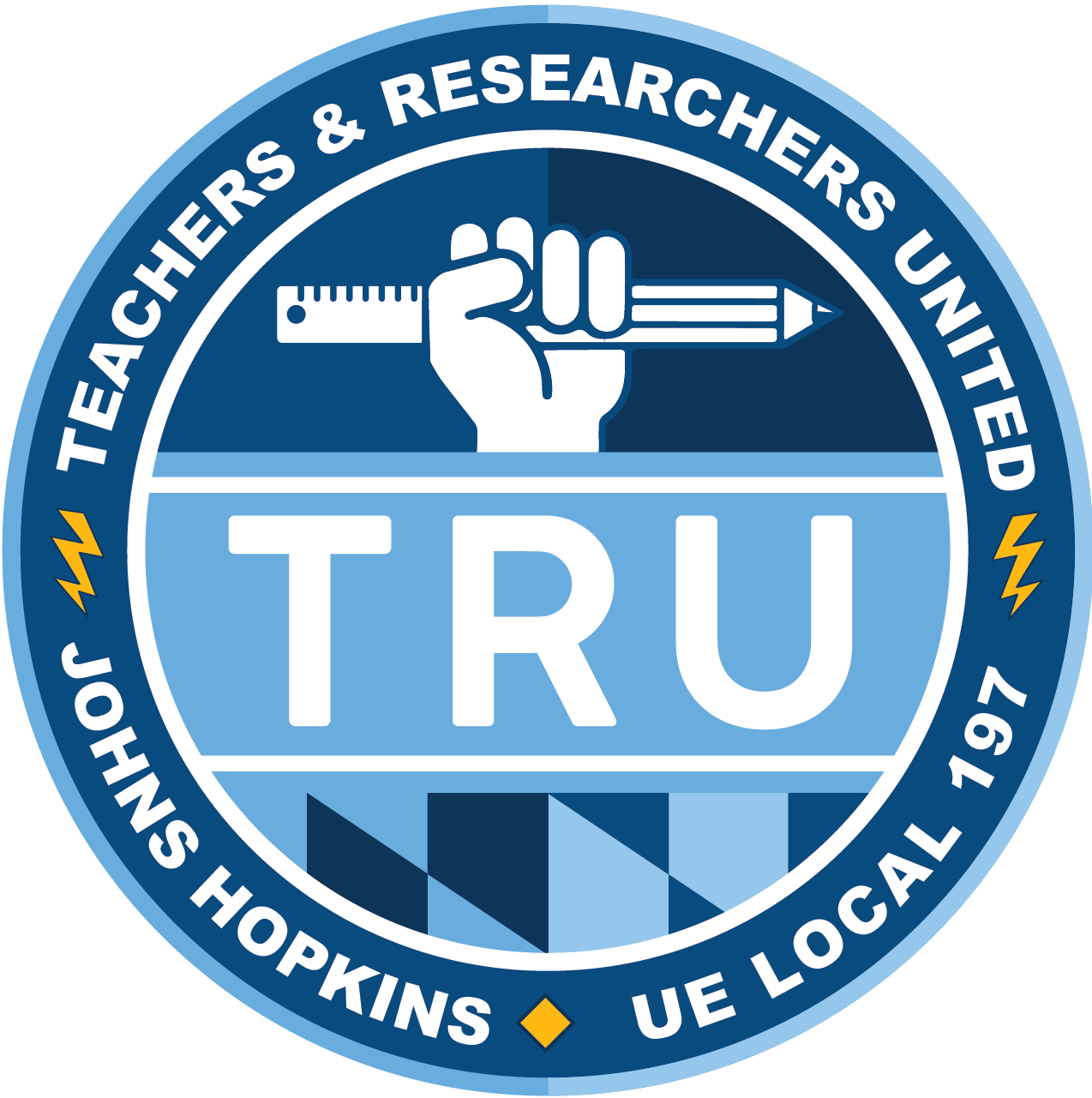These guidelines, which represent our values as a union, arise from a recognition of the need for mutually agreed upon principles and practices for communication within TRU-UE. TRU-UE has developed into a grassroots organization representing thousands of members. Striving for collective action with one another may at times lead to conflict. At times, members may cause harm to one another in the context of TRU-UE-related work. Rooted in solidarity, these principles and practices aim to provide a common understanding among all members regarding interpersonal communication and conflict resolution.
Solidarity: Unity based in our shared mission and struggle. Those closest to the problems are closest to solutions. Striving against and denouncing discrimination based on any marginalized identity including transphobia, racism, antisemitism, sexism, xenophobia, Islamophobia, homophobia, ableism, ageism, and imperialism, both publicly and internally. We honor one another’s experiences. Transparency, an important aspect of solidarity, helps us connect with one another, reduces power imbalance, and confronts attempts at union busting.
Radical Openness: Radical acceptance of all members. Meeting people where they are. This does not mean all behaviors are acceptable. We strive to meet people where they are and confront oppressive behaviors, not people, within our membership. Openness to difference, to new ways of thinking or doing. Conflict is natural and can help move people to a new way of thinking or doing when worked through. Make space for doubt and vulnerability.
Stewardship: We have a responsibility to protect and care for ourselves and each other as vital members of the union. Our words and actions can affect the entire TRU-UE community and the broader communities in which we exist. Impact of actions and words is emphasized over intent. It is possible for members to unintentionally cause harm regardless of good intent, and this harm must be acknowledged as such. Being a product of the systems we are against means we can exhibit some of the negatives of that system. Therefore, we commit to using these restorative justice practices.
Collective action: We do not want to replicate the power imbalances that made creating a union necessary. There is no single decision making body within TRU. Decisions are made collectively and through rigorous consensus building. This may look like centering the decisions made by working groups and vulnerable groups – member groups, regardless of whether they have an official working group within TRU, who are committed to identifying, discussing, and finding solutions to improve the working conditions of grad workers who face similar struggles through the power of collective action. This may look like participating in membership votes when decisions affecting the entire general body are made. This may look like providing feedback to your department organizers or bringing feedback directly to organizing meetings where collective decisions are made. And, this may also include looking towards the recommendations of the elected bargaining committee as they represent the union in negotiating a collective bargaining agreement. Even if a specific strategic decision does not manifest how the organization or you personally wanted, we remain collectively committed to the goal of the movement. Through the various modes of consensus building, our rank and file union model ensures that the voices of those closest to the problem are centered and inform the decisions we make as a collective body in finding solutions to the problem. This model of consensus building also allows us to build collective power to fight for demands which otherwise go ignored by the University if brought up individually.
In our union, we honor vulnerability, relationships, communication, empathy, and self-awareness in making collective decisions.
